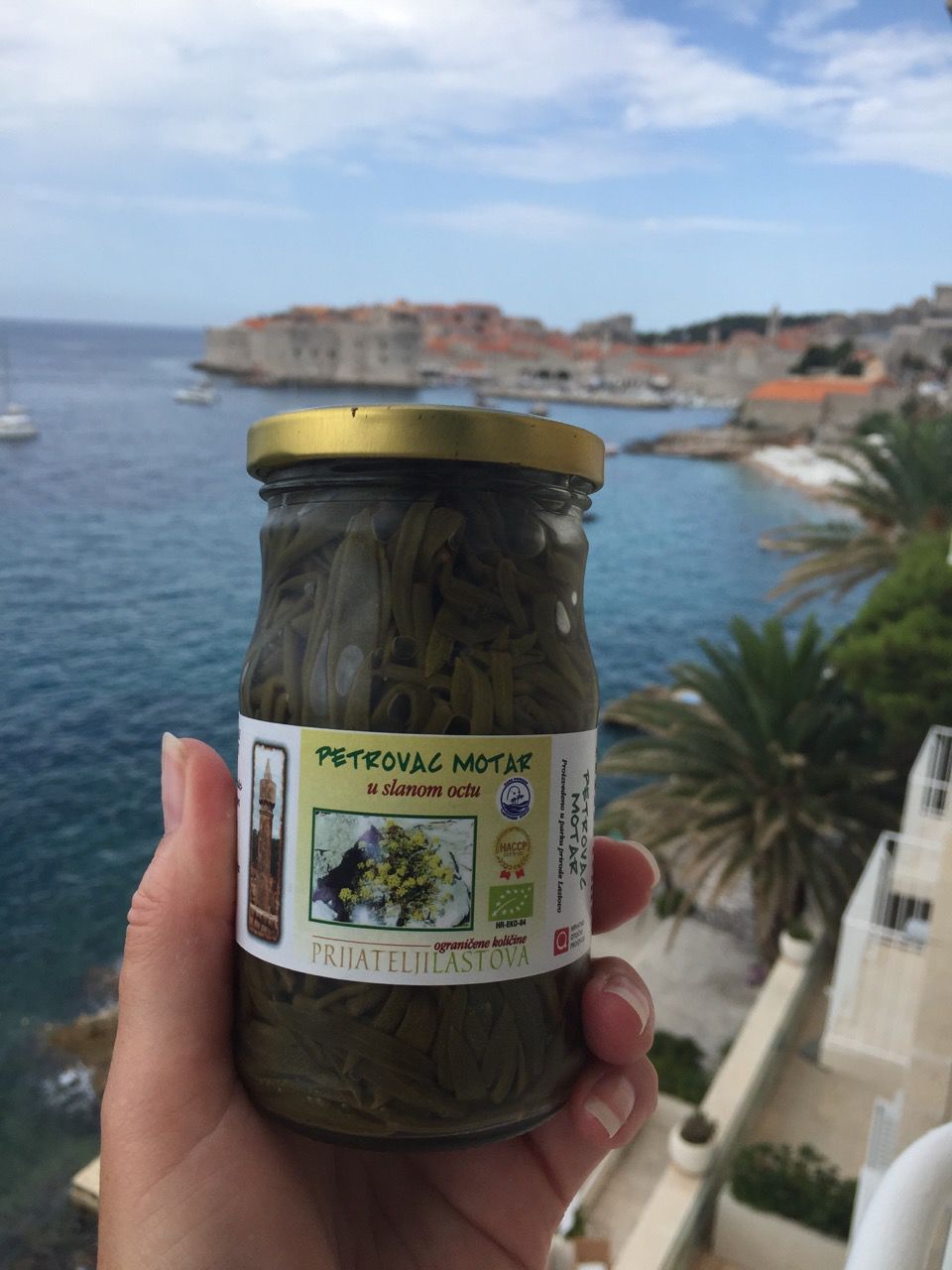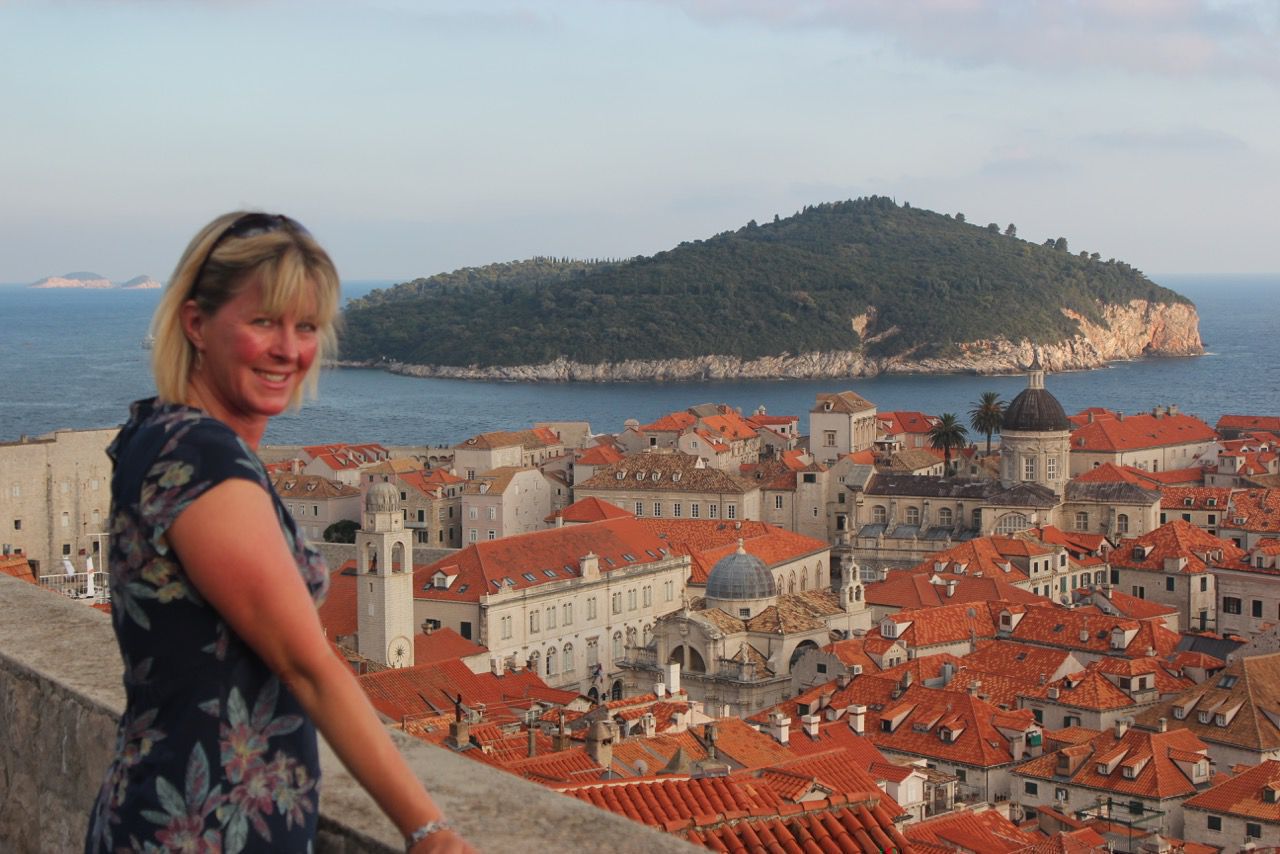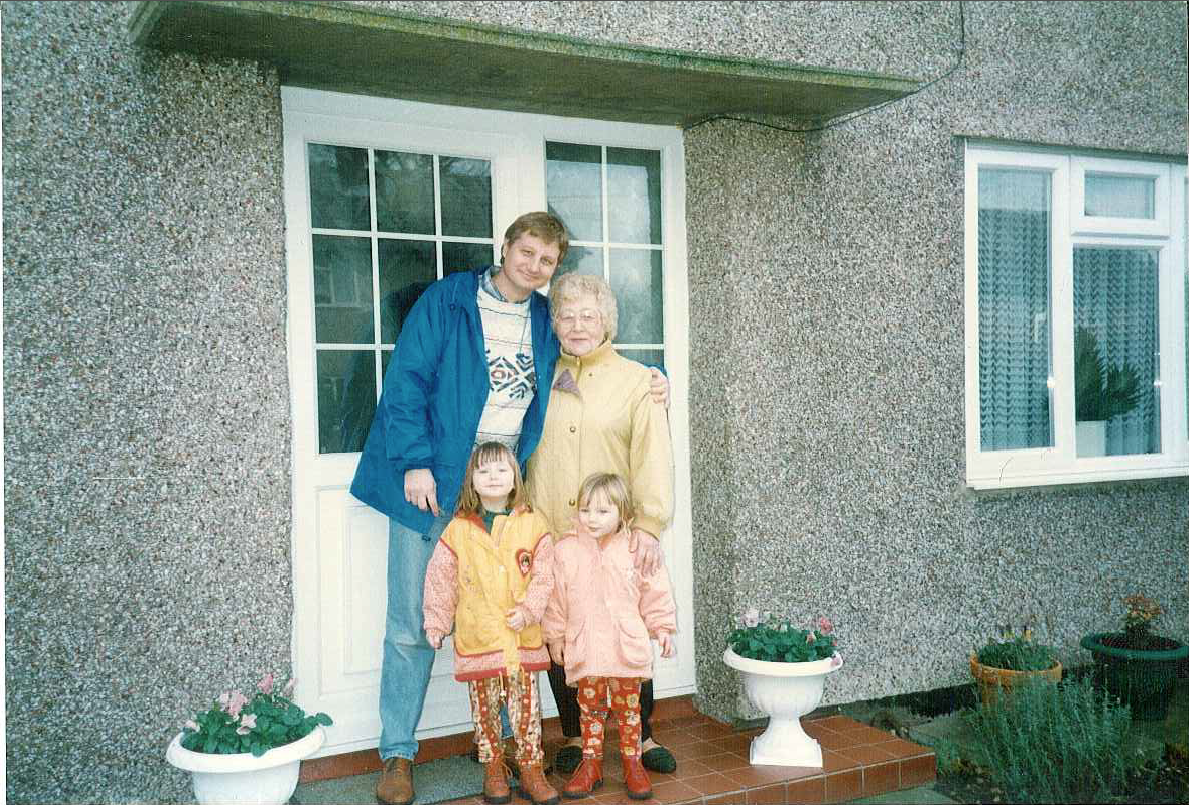How do you say Llanfairpwll…?
Everyone was blown away the other day when Liam Dutton managed to effortlessly pronounce the longest ever Welsh place name on live TV: Llanfairpwllgwyngyllgogerychwyrndrobwllllantysiliogogogoch.
Anything he can do…
I don’t know about you, but here at the EuroTalk office we enjoy a healthy challenge, and this looked like just the sort of thing to get our teeth into! For all those of you who’ve seen our video… Okay, maybe it didn’t go exactly according to plan, and didn’t sound entirely as fluent as Liam Dutton’s version, not to mention that our varying collections of vaguely Welsh-sounding syllables probably didn’t mean anything at all in Welsh, let alone bore a resemblance to the actual meaning of the word, which is (take a breath): ‘Saint Mary’s Church in the hollow of the white hazel near a rapid whirlpool and the Church of St. Tysilio of the red cave’.
Still, practice makes perfect, and this was just our first time. If anyone would like to try to do it better than us (which is probably not too much to ask), why not enter out competition to win a FREE Premium Welsh uTalk app. We’ll be picking the winner based on the creativity of the video, and your attempt to pronounce the word. To enter, tweet us @EuroTalk, post it on our Facebook page or email it to challenge@eurotalk.com by Friday 25th September.
So how should we have pronounced it?
To make it slightly easier, here’s a few pointers we used as to how to pronounce it: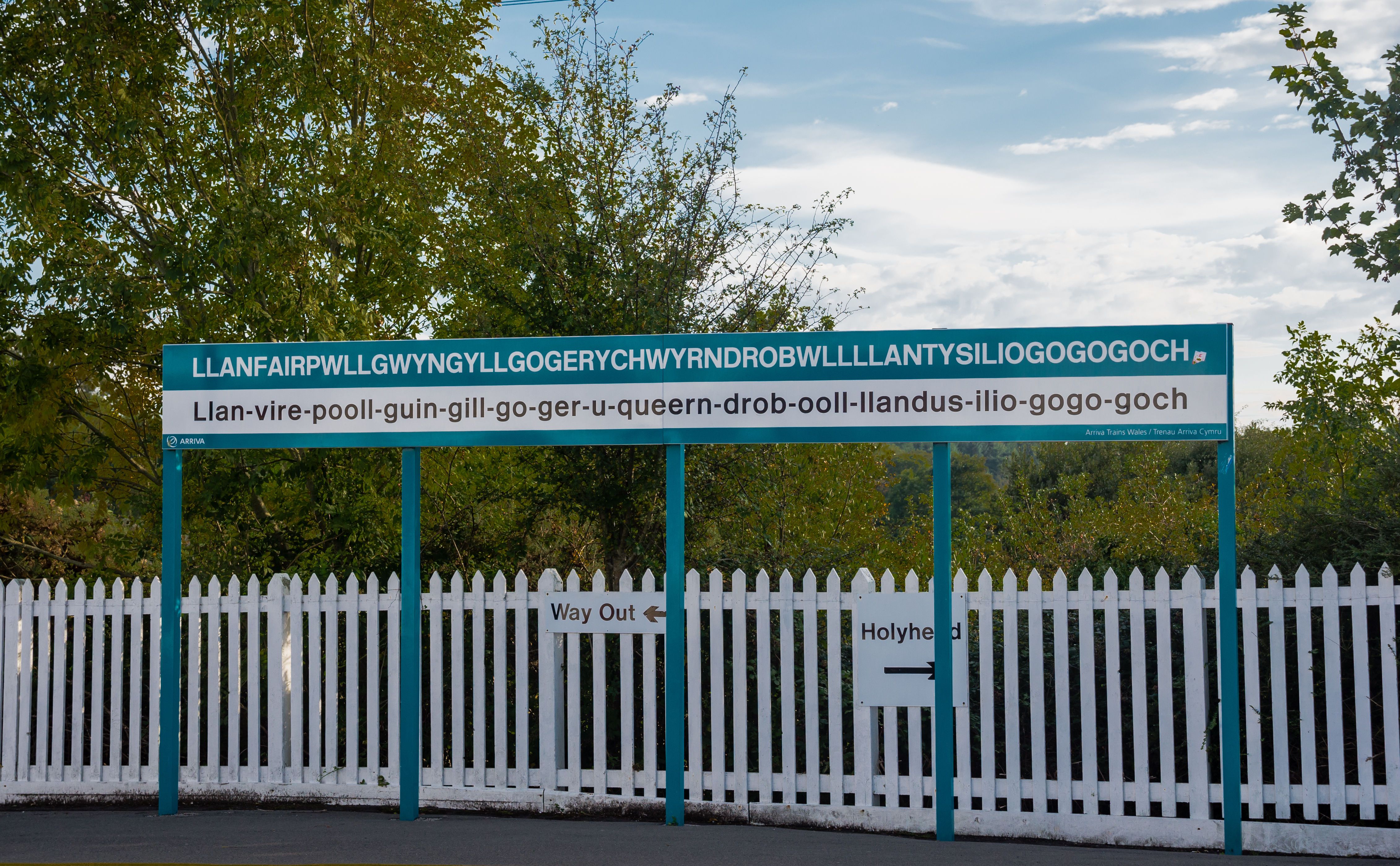
1. It helps to break the word down into bite-sized chunks: Llan – fair – pwll – gwyn – gyll – go – ger – ych – wyrn – drob – wll – llan – ty – silio – go – go – goch
2. Some of the letters have different pronunciation in Welsh to how you would say them in English. For example:
- the ‘f’ in ‘fair’ is pronounced more like a ‘v’, to make ‘vire’
- the ‘y’ in ‘gwyn’ i pronounced more like an ‘i’, to make ‘gwin’
- the ‘w’ in ‘pwll’ is more of an ‘oo’, to make ‘pooll’ AND
- the ‘ll’ in ‘pwll’ is more of an aspirated l (keep the tip of your tongue on the roof of your mouth as you say ‘l’, then blow the air over the top and sides of your tongue)
- the ‘ch’ in ‘goch’ is the same as in the Scottish ‘loch’
Taking that all into account, you end up with something which to English speakers looks a bit more like this:
Chlan- vire- puchl- gwin- guchl- go- ger- uch- wirn- drob- uchl- chlan- ti- silio- go- go -goch
So now that you know it, why not have a go at recording it yourself?
Nat
Going back to my roots to learn Polish
Alex Koszykowska is the newest member of the EuroTalk team, joining us last month as our new sales and marketing assistant. In today’s post she explains why she’s learning Polish.
It is said that a million people in the UK class Poland as their ancestral home in some way. This is the case for my family; my Granddad came to England from Poland during the second world war (my Gran also came over to England but from Russia – she and my Granddad met when she was a nurse in the army). Over the years my Gran has adapted to my Granddad’s ways, and will now only speak Polish or very basic English to us. Growing up, my dad and his brothers were all brought up speaking Polish as their main language, with English as their second. Even today they can slip into Polish very naturally – leaving my sister and I completely oblivious to what was going on around us. My mum and aunties all learnt to speak Polish – mainly to get brownie points from my Gran; but really it is only my sister, my cousins and I who cannot speak Polish in our family.
This means regularly at our family’s favourite restaurant (which of course is owned by a Polish family), we would be pretending to understand what everyone was talking about.Whenever we entered the hotel, I would always greet the family with ‘Cześć’ (hi). My sister and I have also mastered how to say ‘Dziekuje ci bardzo’, which means ‘thank you very much’ (and rolls off the tongue much more easily then you think it would). We have managed to get away with this throughout our childhood. However, now I feel a certain responsibility to carry on this tradition in our family. Working for EuroTalk has shown me that language learning isn’t as intimidating as many people make out.
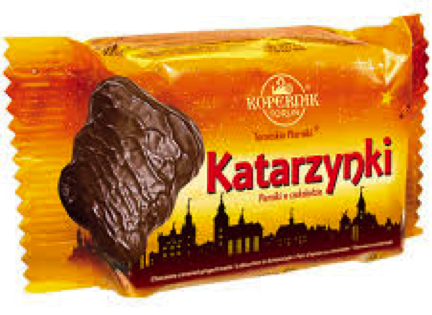 Part of the reason it is so enjoyable to be learning Polish is that I love everything about my Polish roots. From the tradition of whenever we go to my Gran’s she hands us a pack of Katarzynki (which are like soft biscuits with a ginger flavour in the middle and chocolate around the outside) to our rather impossible to say, spell and write surname (with a lot of people finding the change from ‘a’ if you’re female to ‘i’ if you’re male for the last letter of our surname confusing!).
Part of the reason it is so enjoyable to be learning Polish is that I love everything about my Polish roots. From the tradition of whenever we go to my Gran’s she hands us a pack of Katarzynki (which are like soft biscuits with a ginger flavour in the middle and chocolate around the outside) to our rather impossible to say, spell and write surname (with a lot of people finding the change from ‘a’ if you’re female to ‘i’ if you’re male for the last letter of our surname confusing!).
The four words I do know (five if you include dobrze – ok) make my Gran so happy; she loves seeing us take an interest in our Granddad’s language. Even basic language skills are so important and can make a huge difference. My family heritage is my motivation to learn more Polish, which is why the uTalk app is so fabulous, as it is designed so you can learn how to say key phrases. For example ‘proszę mówić wolniej’, meaning ‘please speak more slowly’, which is vital to know in my family!
Are you interested in learning a language, or do you have family members who are bilingual and you’re keen to join them? Try our uTalk app to get started!
Alex
When is a cake not a cake?
You might not believe it, but I regularly arbitrate fairly ferocious arguments about cake. And it’s not because my colleagues can’t share cake (although this has been known to be a problem in the past).
The reason is that this little word, which you would think would be a simple thing to translate, actually gets people quite upset. Throughout the world, different sorts of cake prevail, and some people (understandably) get quite grumpy when you present them with the wrong type of cake. It’s important stuff.
 One of our most recent additions to the uTalk app is Esperanto, where we had to make a very difficult decision about whether to translate the phrase ‘piece of cake’ (available in uTalk Essentials because, let’s face it, it’s essential vocab), as ‘peco da torto‘ or as ‘peco da kuko‘. For English speakers, ‘kuko’ was favoured because it is close to ‘cake’, and therefore brings to mind a big, squashy Victoria sponge. ‘Torto’, on the other hand, inevitably conjures something which is not a cake at all, but a tart – or even a flan: something flimsy and possibly, horror of horrors, covered with fruit.
One of our most recent additions to the uTalk app is Esperanto, where we had to make a very difficult decision about whether to translate the phrase ‘piece of cake’ (available in uTalk Essentials because, let’s face it, it’s essential vocab), as ‘peco da torto‘ or as ‘peco da kuko‘. For English speakers, ‘kuko’ was favoured because it is close to ‘cake’, and therefore brings to mind a big, squashy Victoria sponge. ‘Torto’, on the other hand, inevitably conjures something which is not a cake at all, but a tart – or even a flan: something flimsy and possibly, horror of horrors, covered with fruit.
Nonetheless, in the final stages of the battle, ‘peco da torto’ won, and went through to the final translation. Here’s why: our app is used all around the world by people who can learn from their own native language: we currently have 128 languages in uTalk, and people can learn any one of these from any other. For Esperanto, this is particularly important, because Esperanto is a language that nearly all Esperantists (barring a maximum of a few thousand native speakers) speak as a second language, making the Esperantist community very multinational.
So we want to make our Esperanto translation as internationally relevant as possible. And for most Europeans, at least, ‘torto’ will bring to mind a fairly generic type of cake, whereas ‘kuko’ might be slightly less familiar. Taking just a few European languages, we’ll see that in Russian we have торт, Italian torta, Dutch taart, Spanish tarta, Croatian torta, Hungarian torta. Both options would have worked, but ‘torto’ won the more international vote, and when it comes to Esperanto that’s a pretty important factor to consider.
What do you call a cake in your language? Let us know!
Nat
Why learn Esperanto?
Saluton! Mia nomo estas Nat, kaj mi lernas Esperanton.
Whilst others jet-set away to sunny beaches and tropical climes this summer, my plans are slightly more academic. I will be learning Esperanto. OK, I’ll take a break too, but I’m really excited about my summer goal, and I’m hoping to achieve it within two months.
What, Why, How?
All good questions. Let’s start with ‘What’.
What is Esperanto?
Esperanto is a language invented by Ludwig Zamenhof, whose idea was to create an international, apolitical language which is very, very (very) easy to learn. Since its creation in the 1880s, it’s seen surges and declines in popularity, and is currently spoken by up to two million speakers, and – quite amazingly – up to 2,000 native speakers. Esperantists place a heavy emphasis on how speaking and engaging with Esperanto makes people operate on an equal footing, and can open up communication opportunities all over the world.
Why learn Esperanto?
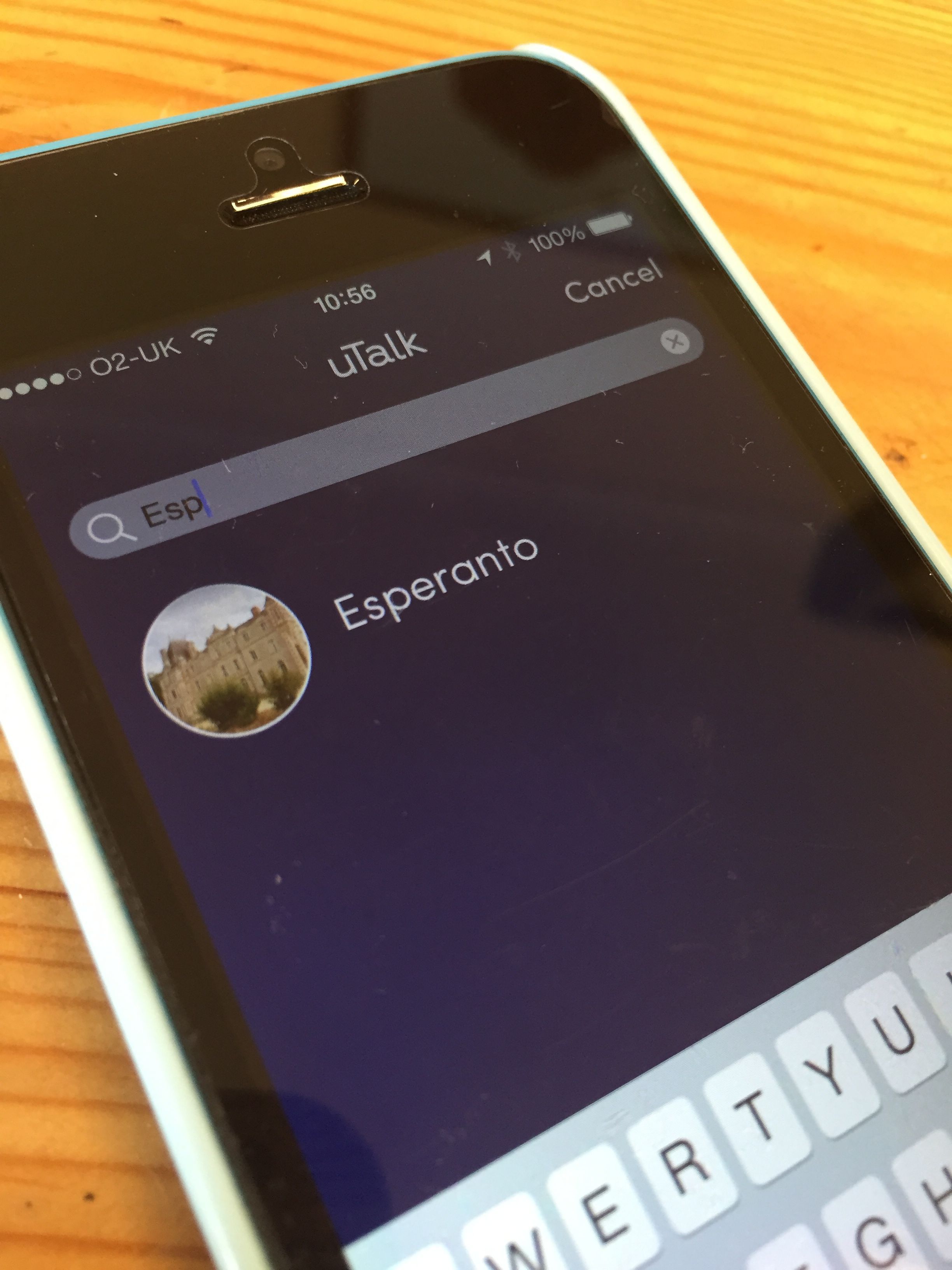 So why learn it? Unlike with other languages, you don’t have the goal of going to the target country to finally try out some of your new Esperanto phrases. There is no Esperanto country, of course. But Esperantists tend to be incredibly friendly and welcoming to those who learn the language, making it easy to find conversation partners or groups, especially in the age of the internet. Esperantists even have their own ‘Passport Service’, by which travelling Esperantists can find locals who are willing to open their houses up to fellow speakers, making it easy to travel abroad and widen your Esperantist community.
So why learn it? Unlike with other languages, you don’t have the goal of going to the target country to finally try out some of your new Esperanto phrases. There is no Esperanto country, of course. But Esperantists tend to be incredibly friendly and welcoming to those who learn the language, making it easy to find conversation partners or groups, especially in the age of the internet. Esperantists even have their own ‘Passport Service’, by which travelling Esperantists can find locals who are willing to open their houses up to fellow speakers, making it easy to travel abroad and widen your Esperantist community.
Personally, I’m mostly in it out of fascination. I’ve heard how easy it is to learn and I want to see for myself how much I can achieve in two months. During our uTalk Esperanto recording, I picked up a couple of the basics and they’ve stuck with me, which has encouraged me to think that I might be able to pick up a lot more fairly quickly.
I’m also interested in the application of Esperanto, beyond just learning it for personal enjoyment. Because the language is so simple (just 16 grammar rules!) and completely regular (yes, completely!), it can be effectively used as a bridge language between communities who otherwise might struggle to communicate. It’s also been trialled extensively in primary schools, where the logic goes that teaching Esperanto enables children to get to a very high language standard very quickly, so that they can start being creative in a foreign language early on. They can then transfer the skills over to other languages they study later: effectively, they have not just learnt Esperanto, but learnt how to learn a language. And done it without the chronic frustration of trying to remember how the irregular past participle should be formed, which taints most people’s memories of school-day French and makes them feel, even as adults, that they ‘cannot’ learn a language. Instead, children can chatter away with relative fluency, experiencing the liberation of communicating in another tongue at a really young age. To learn more, watch this video:
I also like the sound of it. To me, Esperanto has a slightly Eastern European tinge, with a mish-mash of vocabulary which I can sometimes recognise from other languages. Already, as an English speaker, I am familiar with the following basic words:
Jes (Yes)
trajno (train)
Mi lernas (I learn)
boato (boat)
fiŝo (fish)
And from other languages, I recognise:
Dankon (Thanks)
fermita (closed)
ombro (shade)
glacio (ice)
Where am I starting from?
I’m a total beginner: I haven’t ever picked up an Esperanto book, and I don’t own one. However, from my interaction with our Esperanto voiceover artists and translators, I have picked up a few things which in other languages would take me weeks of effort. So I feel like I’m starting from an advantage. What I know is this:
Adjectives
Always end in an -a. To form the opposite of the adjective, you just add ‘mal-‘ in front of it. So:
Granda – big
Malgranda – small
Fermita – closed
Malfermita – open
Vera – true
Malvera – false
Nouns
Always end in -o. Always! To form the feminine, you just add ‘-in-‘ before the final ‘o‘:
turisto – turistino
aktoro – aktorino
kantisto – kantistino
Verbs
‘mi‘ is ‘I’, ‘ŝi‘ is ‘she’, ‘li‘ is he’, ‘vi‘ is ‘you’, and present tense verbs always end in ‘-as‘. So:
Mi lernas – I learn
Li lernas – he learns
Vi lernas – you learn.
How will I learn?
By any means possible. Not coincidentally, uTalk Esperanto has just been released, and that’s going to help me hugely with pronunciation and vocabulary. I’ve also got Katalin Kováts’ Poŝamiko (‘Pocket friend’), a book to guide me on the basics, and then all of the resources listed at http://en.lernu.net/ – more than enough to keep me going for the next few months. After that, who knows – perhaps some conversation classes?
Wish me luck!
Nat
If you’d like to join Nat in learning Esperanto, download uTalk from the App Store to get started!
